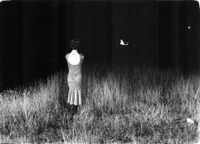
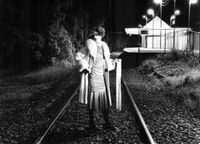
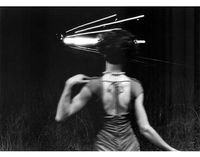
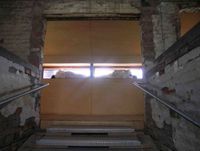
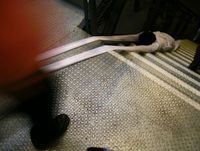
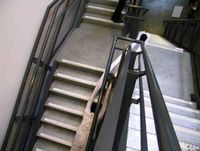

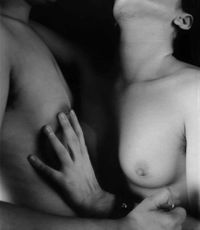
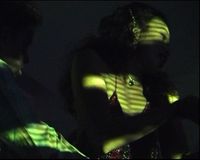
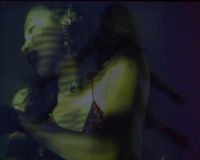
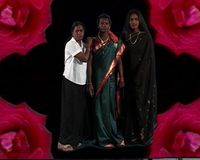
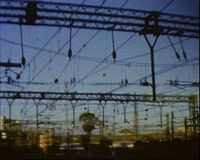

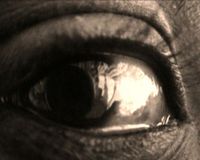

One of the most significant Indian artists of her generation, Tejal Shah (b. 1979) works in video, photography, and performance. For her first U.S. solo exhibition, she presents a new video installation in which the pliable language of gender is explored in a physical, concrete manner not only by her chosen subjects but also through the medium itself. Moving casually between staged performaces, documentary, music video and appropriation, Shah's What are You? creates a direct relationship to her subjects' manipulation of their own gender.
Rapidly paced shots of beach breakers and close ups of skin establish the spaceof the video-film both geographically, Bombay, and conceptually the body. Next, our subjects appear: full length figures against a black void of non-association. These portraits, removed from any context, direct our attention to the physicality of several members of the hijra (transgender) community. There is something unsettling in this direct confrontation. The women, who are staring at us, begin a recitation of their constitutionally guaranteed rights. Their self-conscious performativity falls with a burst of laughter irritating our reading of their relationship to the recited text.
Interspersed with '70s, governmentally produced, medical clips and industrial footage about 'manand his complicated machines', the film moves into the documentation ofone individual's experience of the gender reassignment process. The split screen presents to us simultaneously the content and beautiful result contrasted with the doctor's uneasy, clinical account of the transformation. The film concludes with slow dancing bodies moving with colorful, neo-op, go-go patterns inviting us to the life enbracing vitality of this community.
As a result of her ongoing involvement, Shah, for this project, spent time with Hijra sex-workers in the red-light distric of Mumbai. The installation includes four beds,which are based on those found in local brothels. Arranged barrack style and painted in a distressed mauve finish she creates and environment, which fictionalizes a reality in stark contrast to the realized fiction of the film. Ultimately, gender, reality and fiction remain slippery concepts which due to their interdependence refuse to function traditionally in the encapsulating visual and theoretical spacethe artist has created.
Shah grew up in central India, eventually moving to Bombay in 1995. She completed her BA in photography in Australia and went to the Art Institute of Chicago as a Visiting Scholar. Since 2001, she has been working and living in Bombay.
The Ecole Nationale des Beaux Arts, Paris, included her work recently in Indian Summer as did, over the past 5 years, numerous prestigious venues such as The National Gallery of Modern Art, Bombay; Culturgest Museum, Lisbon; Fukuoka Asian Art Museum, Japan; Total Museum, Seol; and the Institute of Modern Art, Brisbane, Austrailia.
She had a well received solo exhibition in Berlin in 2003 and her works have been screened at many festivals including Video Brazil. The Centre Georges Pompidou, Paris, has recently acquired her work as did several private collections in India and abroad.
Upcoming are solo exhibitions with Galerie Mirchandani + Steinruecke, Bombay; Devi Art Foundation, New Delhi; a group show at the Fondazione Sandretto Re Rebaudengo, Turin, and her inclusion in the inaugural presentation of the Elizabeth Sackler Center for Feminist Art at the Brooklyn Museum, NY.
This exhibition is part of the Asian Contemporary Art Week, May 22 – 27, 2006. ACAW Video Artist: So, Man Yee Stella.
Press release courtesy Thomas Erben Gallery.
526 West 26th Street
Floor 4
New York, 10001
United States
www.thomaserben.com
+1 212 645 8701
Tuesday – Saturday
10am – 6pm